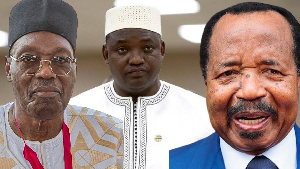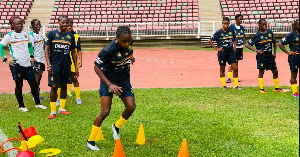Closely related animal species especially humans, chimpanzees, bonobos, gorillas and other primates generally share susceptibility to the same groups of microorganisms. Our closest relatives, chimpanzees and, most likely, bonobos, share with us the potential for infection with virtually the same set of microorganisms. Exposure to these nonhuman primates has led to the emergence of important diseases, including Ebola hemorrhagic fever, AIDS, and adult T-cell leukemia (HTLV). Hunting, butchering and eating of nonhuman primates have been linked to the transmission of Ebola, monkeypox and other important diseases.
Ebola virus disease first appeared in 1976 in 2 simultaneous outbreaks, one in Nzara, Sudan, and the other in Yambuku, Democratic Republic of Congo. The latter occurred in a village near the Ebola River, from which the disease takes its name. Ebola has claimed thousands of lives and devastated communities across West Africa since then with more than 19 different outbreaks. One year ago West Africa was descending into chaos. More than 11,000 people have lost their lives to this disease, with nearly 28,000 infected since the beginning of the current epidemic. The current Ebola outbreak in West Africa, the biggest in history, has succeeded in moving experimental drugs and vaccines into larger clinical trials. Clinical trials for several candidate vaccines are in various phases and a safe and effective vaccine is hoped for soon. At this time, there are no vaccines to protect against Ebola virus disease licensed for use in humans.
A couple of studies (including some I have worked on) have shown that some of these potential vaccine candidates works in primates both to prevent infection when given before exposure and to increase survival chances when given quickly after exposure. Based on these results a number of phase clinical trials started in 2014. These trials are to determine if these potential vaccines are safe and can generate an immune response in humans. These studies started in the USA in Baltimore by the National Institute of Health using the vaccine candidate developed by GlaxoSmithKline. There are other vaccine candidates such as the one by Inovio Pharmaceuticals, a small company in Plymouth Meeting, Pa, and yet another one from Protein Sciences of Meriden, Connecticut, which already sells a flu vaccine starting with the combination from Johnson & Johnson and Bavarian Nordic. Another company, Profectus BioSciences of Baltimore, an offshoot of the Institute of Human virology where I happen to be working received federal funding last year to move its Ebola vaccine toward clinical trials. Similar clinical studies have been carried out in many other countries and it is no coincidence that Cameroon has been chosen as one of the test sites.
In clinical trials all over the world including the USA, volunteers are usually compensated. Compensation amount and the method and timing of disbursement is consistent with the laws, regulations, and guidelines of the region in which the study is conducted. These compensations should not improperly influence a subject’s decision to participate and may be provided to reimburse out-of-pocket expenses associated with participating in the study, so that qualified subjects may enroll without incurring personal financial expenses to participate. Excessive compensation which may cause subjects to undertake risks or discomforts that they otherwise would not assume are usually discouraged.
There is an urgent need for a protective Ebola vaccine, and it is important to establish that a vaccine is safe and spurs the immune system to react in a way necessary to protect against infection and the only way we can achieve this is through clinical studies.
These vaccines offers hope for a future where we never have to face an Ebola epidemic like this again.
Opinions of Tuesday, 17 November 2015
Auteur: Dr. Ateh Eugene














